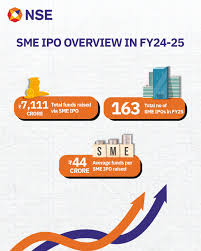Current Trends and Insights on NSE India

Introduction
The National Stock Exchange of India (NSE) holds a pivotal role in the Indian financial market, serving as one of the leading stock exchanges in the country. Established in 1992, NSE has transformed the landscape of trading by introducing technology-driven trading systems and enabling broad participation from both domestic and international investors. Understanding the latest trends and developments at NSE is crucial for investors and stakeholders in evaluating investment opportunities in the dynamic Indian economy.
Current Market Trends
As of October 2023, NSE India has witnessed significant volatility amid global economic uncertainties and domestic inflation concerns. The Nifty 50 index, a benchmark of the exchange, has experienced fluctuations driven by various factors, including the performance of key sectors like IT, banking, and pharmaceuticals. Recent reports indicate that the index has shown resilience, recently crossing the 20,000-mark for the first time, reflecting investor confidence despite external challenges.
Recent Developments
In addition to market fluctuations, NSE India has introduced a series of measures aimed at enhancing transparency and efficiency in trading. The exchange has rolled out a new facility called “NSE NOW” which enables retail traders to access real-time trading data, improving their ability to execute transactions swiftly. Furthermore, the NSE has achieved a significant milestone by launching a dedicated trading platform for commodities, catering to the rising demand for commodity trading in India.
Regulatory Environment
The regulatory framework governing NSE has also evolved, with the Securities and Exchange Board of India (SEBI) implementing new guidelines focused on investor protection and market integrity. AS a part of its ongoing efforts to enhance transparency, NSE has also strengthened its surveillance mechanisms to prevent market manipulation and ensure fair trading practices.
Conclusion
Looking ahead, NSE India is poised to play a crucial role in shaping the investment landscape as it adapts to global economic conditions and evolving regulatory requirements. The integration of technology in trading processes and the introduction of new financial products are likely to attract more participants, thus bolstering market liquidity. For investors, staying informed about NSE trends and developments remains essential for making well-informed investment decisions. The future of NSE promises continued growth, emphasizing the exchange’s importance in the broader context of the Indian economy.








